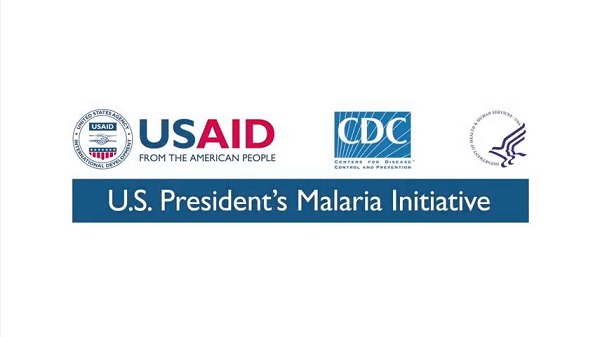
In its 9-year program in Ethiopia, the U.S. President’s Malaria Initiative was able to equip more than 1,000 health facilities in areas most prone to malaria with improved their quality of service.
During the 30th African Union Summit, the African Leaders Malaria Alliance honored six African countries for their exemplary leadership in driving down malaria cases, even as regional and global progress risks losing momentum.
(U.S. Embassy)–The U.S. President’s Malaria Initiative (PMI), led by the United States Agency for International Development (USAID) and the U.S. Centers for Disease Control and Prevention (CDC), marked the end of a nine-year program with the Ministry of Health to improve the ability of Ethiopian health centers to detect, diagnose, and treat malaria. Under PMI’s Malaria Laboratory Diagnosis and Monitoring Project, experts trained more than 3,500 laboratory professionals to conduct more accurate microscopy diagnoses, and an additional 2,400 healthcare workers received training to treat malaria patients more effectively. As a result, more than 1,000 health facilities in areas most prone to the disease have improved their quality of service.
Malaria is a leading health threat in Ethiopia, where more than two-thirds of the population lives in high-risk areas and more than 1.5 million cases are reported annually. Accurate and prompt diagnosis and treatment of cases is the cornerstone to controlling and preventing the spread of the disease.
Over the past decade, Ethiopia has achieved tremendous progress in fighting malaria. Accuracy of testing has increased from 59 percent in 2011 to 97 percent in 2016, which has contributed in a significantly reduction of the number of deaths from malaria, which have declined from over 2,000 in 2012 to just 374 in 2017.
The $10 million Malaria Laboratory Diagnosis and Monitoring Project was implemented by ICAP-Columbia University in Ethiopia from October 2008 to February 2018. Under a new second phase of the project, PMI will continue providing technical assistance to improve malaria case management to support the Ministry of Health’s plan of testing and treating all malaria cases. You can fine the Amharic version of the press here.□
Launched in 2005 by President George W. Bush and expanded under President Barack Obama, the U.S. President’s Malaria Initiative is a historic U.S. Government effort to lead the fight against malaria. Since the beginning of the Obama Administration, with the support of Congress, annual funding levels for PMI doubled.
In related news, during the 30th African Union Summit which was held in Addis Ababa 22-29 January 2017, the African Leaders Malaria Alliance (ALMA) honored six African countries for their exemplary leadership in driving down malaria cases, even as regional and global progress risks losing momentum. The 2018 ALMA Awards for Excellence were presented to the heads of state of the following countries:
- Madagascar, the Gambia, Senegal and Zimbabwe
- Reduced malaria cases by more than 20 percent from 2015 to 2016
- Algeria and Comoros
- On track to achieve a more than 40 percent drop in cases by 2020
ALMA is an alliance of 49 African countries working to end malaria on the continent by 2030. The ALMA Scorecard for Accountability & Action tracks progress and drives action on malaria control and elimination, and the ALMA Awards for Excellence are chosen by an independent committee of experts in health, academia, and the private sector.
Source: U.S. Embassy-Addis Ababa
